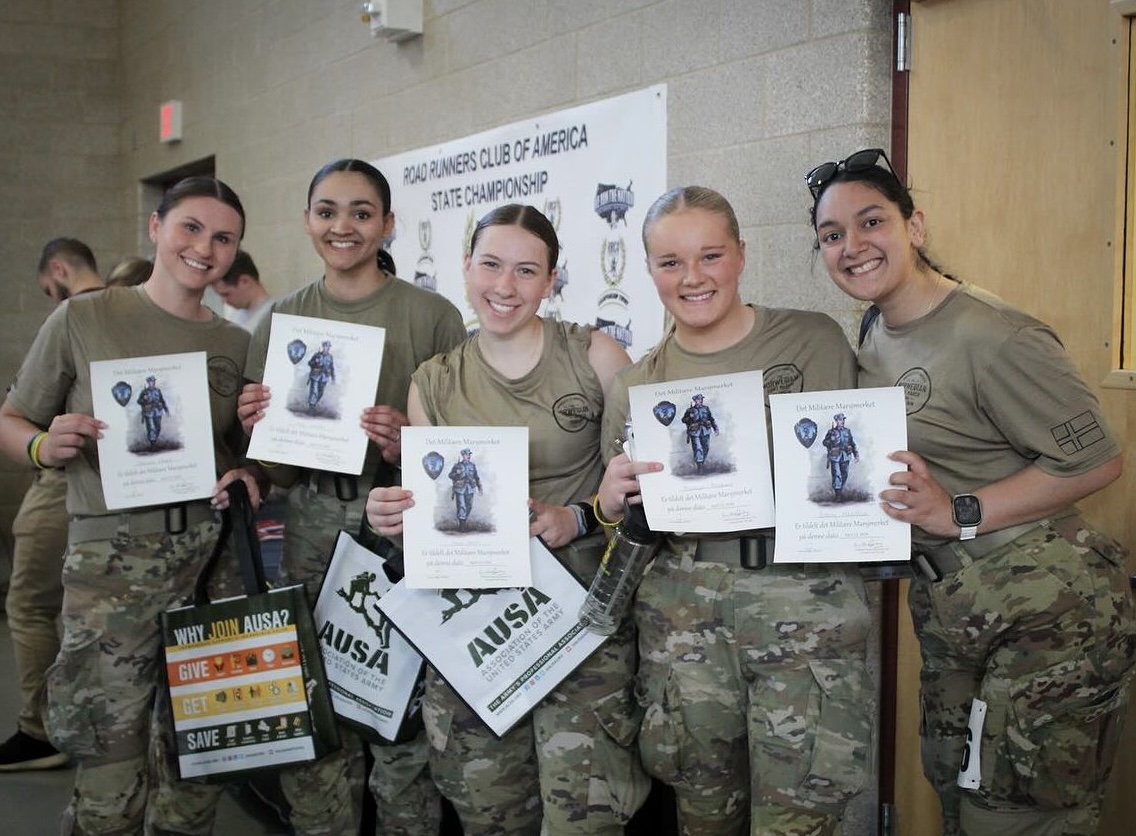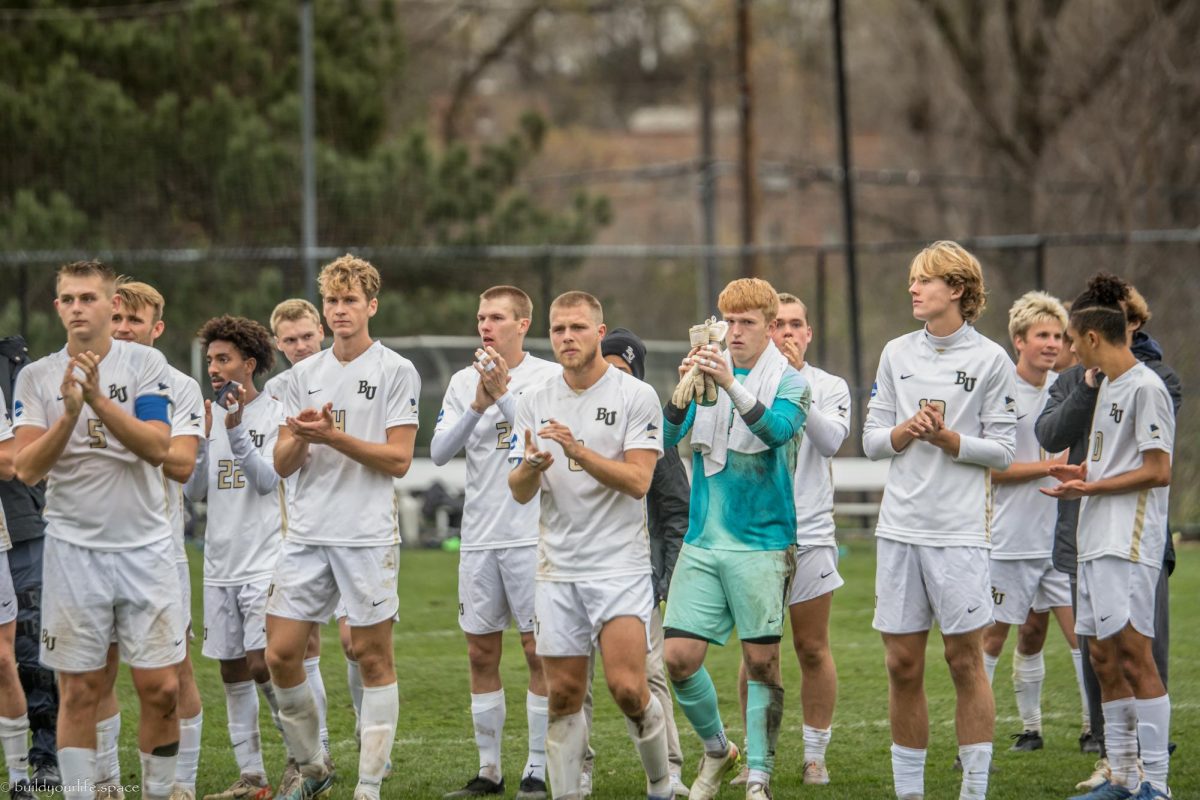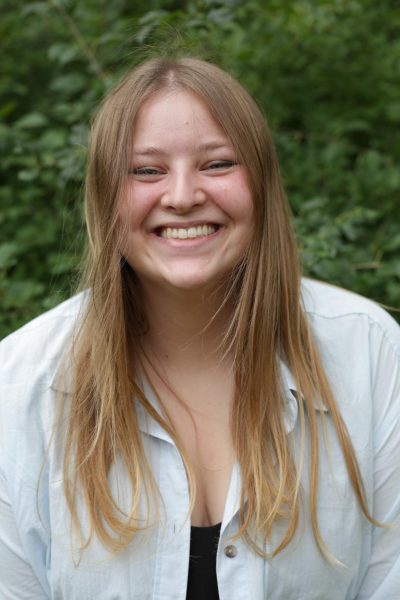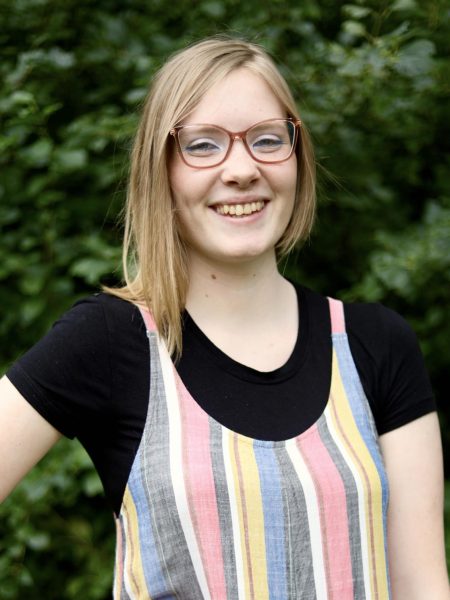Angela Sabates clicked through a PowerPoint for her psychopathology students, pulling up the next slide: “Biases.” She shared a personal experience from graduate school, where a peer said it was narcissistic to name children after parents. Sabates remembered staying quiet — she was named after her mom, and her brother after her dad. The class stayed silent.
Born in Cuba under the regime of Fidel Castro, Sabates and her family escaped to the U.S. in 1967 when she was five. Now as chair of Bethel’s Psychological Sciences Department, a place she’s worked for 21 years, Sabates shares experiences that shaped her because she came in as the outsider and wants everyone to feel welcomed.
“I am devoted to being inclusive,” Sabates said. “So when I teach classes, when there’s an opportunity, I bring [my culture] up.”
With Cuba under Castro’s communist control from 1959 to present, Sabates recalls public executions in the streets, people imprisoned without trials and citizens living in fear. Sabates’ parents, her dad an oral surgeon and her mom educated in criminal justice, wanted to leave with Sabates and her three siblings. However, her parents’ visas to leave Cuba were denied by the Cuban government for six years.
Despite this, Sabates says her parents tried to protect her and her siblings from the executions, gunshots and bombs. They never brought the violence up in the home and consciously avoided spots in the city where shootings had happened.

Despite hardships in her family, Sabates says she only has good memories when reflecting on her childhood in Cuba. She remembers spending time at beaches, Sunday dinners with extended family and parties at their home.
Sabates had to learn how to speak English when she was thrown into a classroom in Kansas City, Missouri. At age 6, other kids would make fun of her accent and tease her for not being able to say the alphabet.
Sabates knew since she was a child that she wanted to be a psychologist. She would often ask her cousins to tell her their problems, sit and observe patterns or make up stories about people’s lives.
Eventually, Sabates got a degree in psychology and moved on to pursue her doctorate, winding up in Virginia and Florida before landing at Bethel. She had enjoyed her time counseling youth — performing psychological evaluations and leading community talks — but in the end, felt “restless” for something more. She started teaching at Bethel in 2003, and has since served in both psychology classes and the humanities program.
“[My parents] would say this is the land of opportunity,” Sabates said. “No one can take your education from you.”
—
In the psychology wing of the Barnes Academic Center, Sabates’s office door is often open. She likes to invite students to share a cup of espresso. She greets students, asking about their days and opening up the conversation for whatever they want to share.
One time elementary education major Emely Castillo-Hernandez went to Sabates for career guidance, not knowing if she wanted to be a teacher or a psychologist.
“I felt very safe,” Castillo-Hernandez said. “Like I was in a safe place [where] I could tell her anything.”
Sabates often attends Voz Latinx, a United Cultures of Bethel subgroup for Hispanic and Latinx students. Last year, Sabates and her husband attended a Voz Latinx dance lesson. She has also invited the subgroup to her house for Cuban food and attended meetings, including one where they talked about graduation strategies and imposter syndrome at a predominantly white institution.
With the kickoff of Christian Formation Community Groups last spring, Sabates wanted students of color to have a space. She created a group called “God’s image in a diverse world.” Only one student showed up, but the two decided to keep meeting to talk about faith and culture.
“She actually takes the time to get to know her students,” Castillo-Hernandez said.
She invites people in for the holidays and hosts a Thanksgiving party for those who don’t have a place to go. She and her husband always say, “Our home is open to the outsider.” They invite new professors, students without family and international students from their church. Sabates often hosts 25 to 30 people in her home who otherwise wouldn’t be connected to each other.
“In all Spanish cultures, there’s a lot of hospitality,” Sabates said. “We frequently invite people to our home.”
Sabates led this year’s January-session European Pioneers of Psychology trip with Professor of Psychology Gretchen Wrobel. During the trip, the group experienced a train strike – stuck in Germany, they had to wait three days to get a train. Sabates took up the responsibilities, made certain calls and was able to find a bus after one day.
“She’s very generous with her time,” Wrobel said. “She’s very supportive. She will work with you to get something done if you need something done.”
In another lesson during her psychopathology class, Sabates had students compare pictures on Google based on adjectives. Sabates pulled up two Google image searches: “beautiful woman” and “successful man.” For “beautiful woman,” Google offered pages and pages of white women. No one who looked like her. Sabates used the search result to discuss biases brought up in class, pointing out that everyone holds biases.
“My favorite part of the job is helping to inspire students to stretch their own thinking,” Sabates said.
Correction: Feb. 23, 2024
In an earlier version of this article it was written, “With Cuba under Castro’s communist control from 1959 to 2008, Sabates recalls public executions in the streets, people imprisoned without trials and citizens living in fear.” It has now been accurately changed to “With Cuba under Castro’s communist control from 1959 to present, Sabates recalls public executions in the streets, people imprisoned without trials and citizens living in fear.”
















![Sabates talks with students near the front row in HC414 Feb. 15. About to start a psychopathology class discussing biases, Sabates asks how students are doing. “My favorite moments are the informal times [with students],” Sabates said.](https://thebuclarion.com/wp-content/uploads/2024/02/240215_Haveman_AngelaSabates_02-1200x800.jpg)

